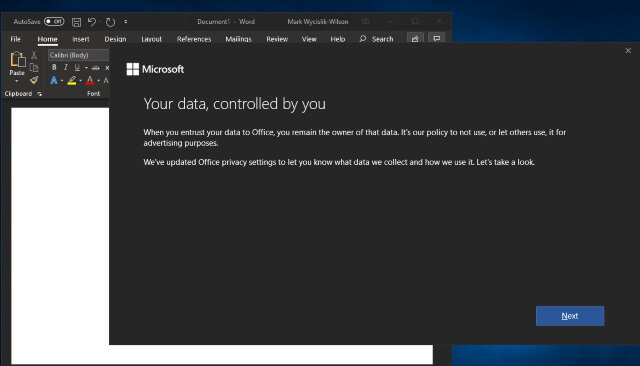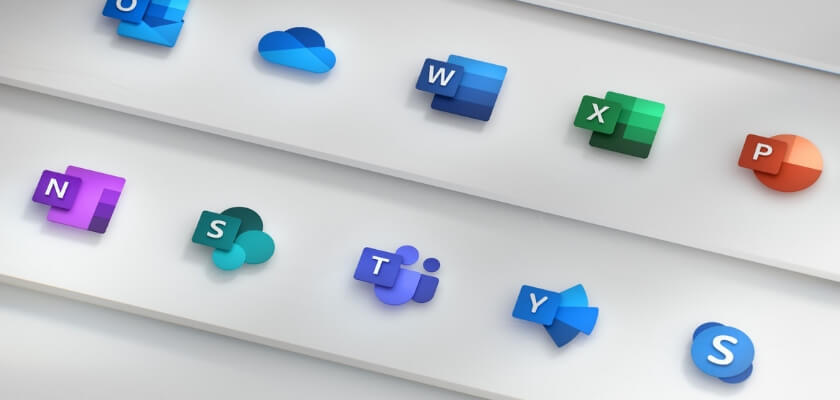Like the saying goes, if you’re not paying for it, you’re not the customer – you’re the product.
But we’re talking about Big Tech here, where greed and lack of ethical consideration has been known to reach astonishing proportions – so it’s not entirely ruled out that customers might pay money for a product, and still end up paying some more, this time, with personal data and privacy.
Microsoft seems to be combining the worst of both scenarios when it comes to its Office suite, whose basic functionality is available free via mobile and web apps. But even those who pay to use the more advanced versions of Word, Excel, PowerPoint, Outlook, and other programs still run the risk of being tricked into “oversharing” their data with the company.
And given that Office is the most widely used software of its kind in the world – that’s a lot of data. What your average tech giant would do with it is profile users for better ad targeting, or sell it to third parties. But Microsoft swears that advertising is the last thing on its mind here – even though bringing ads to the home screen and menus of Windows 10 has been one of its most striking features.

BetaNews now writes that the way the company is going about collecting Office telemetry data looks decidedly “sneaky”: upon launching an Office program, users are invited to go over their privacy settings to determine what data they willingly hand over to Microsoft. The slogan on the pop-up window’s front page is “Your data, controlled by you” – but users have no control over the dialogue itself, and must click all the way through to get rid of it.
Microsoft goes for ambiguous and unclear language in this effort that looks obviously designed to steer users toward agreeing to hand over more “optional diagnostic and usage data,” the report said.
A setting with the heading “Powering your experiences” you are told that:
“Office includes experiences that connect to online services — for example, downloadable templates from Office.com, and OneDrive file storage for sharing files with people you choose. When you use these experiences, Office collects diagnostic service data. In addition, some of these services analyze your content to deliver suggestions and recommendations.”
Microsoft has changed the way privacy settings work in Office, and has moved where you control these settings: File > Account > Account Privacy > Manage Settings (not something you’re likely to stumble across by accident). Online, Microsoft suggests that this change “applies to Office version 1904 or newer”.
In addition, the company has changed the location of Office “experiences” settings by burying them under several levels in the menu. Those who discover it will find they must opt out if they don’t want to share specific data with Microsoft – i.e., all the checkboxes are enabled by default.
If you're tired of censorship and dystopian threats against civil liberties, subscribe to Reclaim The Net.









